Darren Hayman - Interview
by Benjamin Howarth
published: 27 / 5 / 2020
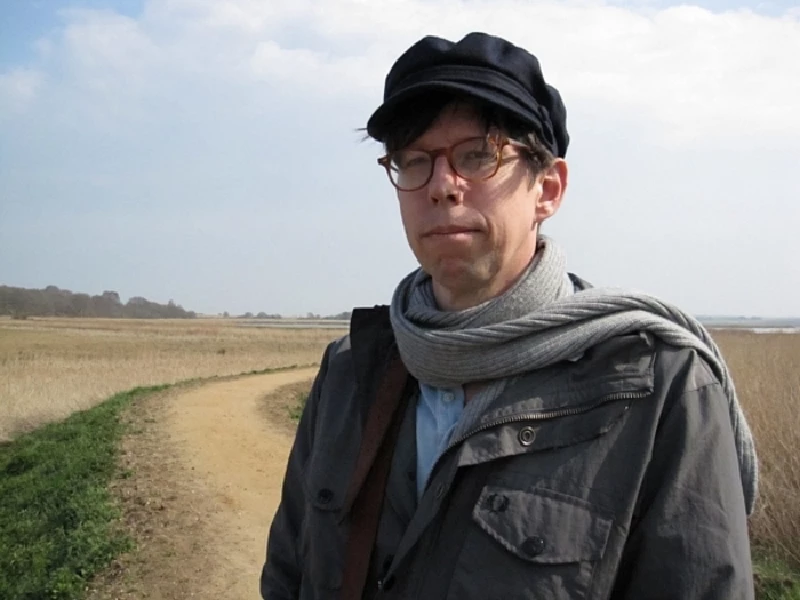
intro
As he prepared for the release of 'Home Time', his 17th album, Darren Hayman speaks to Ben Howarth about his most personal album and his reflections on the end of his epic, award-winning 'Thankful Villages' project.
Over the course of 2014 and 2015, Darren Hayman began visiting each of the 54 ‘Thankful Villages’ in the UK – the places where every soldier they sent to the trenches during World War One came home. For each of these villages, he produced a piece of music, a painting and a video – with the music released over three volumes of ‘Thankful Villages’ albums between 2016 and 2018. Part field recording, part local history, part travelogue – to anyone who only knows Darren Hayman as the man behind Hefner and the ‘Hymn For The Cigarettes’, this would seem quite a departure. But, it was what his increasingly conceptual and idiosyncratic songwriting had been building towards for several years, following a trilogy of albums set in Essex and the multimedia ‘January Songs’ project. That project saw Hayman receive the broadest acclaim of the year. He was invited onto Radio 4 and interviewed on television, including around the 100th anniversary of the First World War. He was interviewed in ‘The Financial Times’ and the live shows he did in the villages were chosen as gig of the year in ‘The Guardian’. And yet, the press release issued alongside the project alluded to this being a “difficult time for Darren”, as he and his wife divorced and he moved from Walthamstow to Crystal Palace. Now, with the ‘Thankful Villages’ project all but complete (there are a few videos still to come), we get the other side of the story, with two records detailing Hayman’s divorce – ‘Home Town’, a full twelve track album and ‘I Can Travel Through Time’, an accompanying micro-album of one minute songs, released as a seven-inch. In many respects, with minute autobiographical details and the theme of heartbreak, these albums are the closest Hayman has come to recreating Hefner’s style since that band ended in 2002. Yet, the tightly composed melodies and careful arrangements should also please anyone whose first encounter with Hayman was through a ‘Thankful Village’. I spoke to Hayman from his home during the coronavirus lockdown. The album’s title and its accompanying set of home recorded videos seem perfectly timed – but were in fact pure coincidence, all made before the crisis. It had been another difficult time – Darren’s father had died as a result of coronavirus earlier in the month and his mother, who had also contracted the virus, had recovered but required ongoing care, meaning Darren and his family had formed a socially isolated group to look after her. He was, however, continuing to promote his upcoming album, telling me as we begin that “it’s good to do stuff that isn’t just to do with that.” I started, therefore, by asking him to tell me about the process of making ‘Home Town’. DH: It took ages, actually. Even though nothing on it took a long time, if that makes sense. They were all quite quick recordings. But the writing of the songs spread out over several years. At one point, a few of the songs were a bit electronic and had processed guitars – I had an idea of always having guitars with effects on it. But, after I moved house, from East London over to here, Crystal Palace, the idea of recording it all again in a new place seemed quite appealing. So at that point, I recorded it quite quickly. At that point, I set myself a few rules for the recording. It is all recorded on 8 track – there are only eight things on any one song. And everything on the record moves air – that’s to say, everything is a string vibrating or a drum being hit, and that sound hitting a microphone. A complicated way of saying it’s acoustic! But, when people say acoustic now, they often mean that they have plugged in acoustic guitars. This is truly acoustic. This is something I have tried to before. It is the sound I was aiming for on ‘Essex Arms’ – I was challenging the idea that acoustic doesn’t have to mean soft or polite. PB: And, lyrically, the album tells the story of the end of a relationship? DH: The album is about my break-up and my divorce. It is a mixture of songs that were written as it was happening, and then using songs written afterwards that were more reflective – and then knowing that the majority of people wouldn’t be able to tell which were which. I think that made it easier to make a more truthful record or a more adult record. There is a book of poetry by Sharon Olds,called ‘Stag’s Leap’, and it’s all about her break-up. She waited something like ten-fifteen years, until her kids had grown up, before she published it, even though it was all written at the time. So, there is a little something of that in the album – some of the songs I was writing at the time wouldn’t have been very nice for lots of people to hear, or even for myself. There wouldn’t have been good reasons for me having to deal with releasing it – so they just stayed locked on the iPhone or on a hard drive. It felt apt to leave it for a bit after they were released. PB: When you were writing these songs, did you think that would definitely want to come back to them and release them – or was it just a case of using the songs to get something of your chest? DH: Erm…I think anything I wrote at the time, I knew then would benefit from being re-written later. I think it is probably different for other writers, but I don’t think stress makes me write better words, it just makes me write more quickly. So, I think I knew that they would benefit from a bit of hindsight. But, the other thing that is happening is that there is a directness about what you are saying and sometimes you write things down that you think people are never going to hear, that you think you are going to tame, but you don’t. So, it retains that violence of the immediate. Whenever I write something, I think it will be of use to me – I don’t write songs for my own therapy. I would give up halfway through if I did that – I feel like I get my therapy somewhere else. When I am writing a song, I feel like I am doing my ‘job’, so I am always somewhere trying to imagine an audience eventually listening to it. PB: I suppose the way you have worked – particularly as a solo artist – has always been a case of working to a project, with some rules and a pre-imposed direction. DH: Yeah, and there was on this as well. Although these are songs about emotions, not a particular place or subject, there are still stylistic things that I was trying to do across the album. I was trying to break people’s heart on the sly – it ostensibly sounds like a jolly record and I think it is quite catchy in places. I have Laura K and Hannah Winter singing with me all the way through – I was trying to make a duality between the songs saying that I am really heartbroken and lonely, and yet I have two girls half my age singing with me all the time. In my mind, that’s supposed to be a joke on my misery. The idea was that people would listen to that and think, “Oh, that’s quite nice”, but then they would later realise that, underneath that, it’s quite sad. PB: I suppose an example of that is ‘I Want to Get Drunk’, which initially seems like a bit of a release from the sadder songs when it comes in the middle of the album, if you are half listening…but then you realise if you listen closely that it is quite a bit darker. DH: I think that is one I am pleased with as a piece of writing. I do go to drink first when I am down, and I have at times in my life, felt it necessary to go to groups and talk about it. But in these groups, you are inclined to never talk positively – it would be terrible to say that drinking is great in front of other people with drinking problems. But I was trying to think about a song, which is desperate in its need for release, but is also trying to show what is good about it. A hard thing to do, but judging by your reaction, I have at least partially succeeded. It is an attempt at talking about the good part of an addiction, without it being an advert for Bell’s Whiskey. But there are also some lines that show there is a problem there. PB: The album ultimately ends on a more hopeful note, the songs towards the end take you into a new relationship. DH: Yes, there is a slight rise towards the end. And, the last song was the last written. The songs aren’t all presented in the order they were written, but there is an order to it. PB: This is the first time you have done this sort of album for some time, perhaps ever. DH: I got the best press and best critical reaction of my life from ‘Thankful Villages’, even more than Hefner. I was covered in the broadsheets and was on telly. I think part of that was people thing, “Oh, this guy’s written the article for us.” This time, the reaction will be interesting – it might be that people don’t have any interest in another album about a guy having a hard time. I haven’t written about myself this directly for some time. The events covered on this record were taking place while I was making ‘Thankful Villages’, and it does pop out a little bit. There are a few songs where, if you were very keen eyed, you might have thought, “Ooh, has something happened to him, here?” There is a video where I can see that I am not in good shape, and I can see that I’m not well, but I am not sure anyone else has noticed. PB: I often find it amusing, there are certain songwriters where they always seem to be able to find an element of emotional trauma to peg a press release onto. Something bad seems to happen to them just in time for the new album…I’m not sure it’s always convincing. DH: There’s a slightly annoying thing that gets said to you as an artist – when something bad happens to you, people will say, “Oh, at least it gives you something to write about.” It’s annoying, like a kind of consolation prize of being an artist when shit things happen to you. I think some artists do look for that. They almost booby-trap their life so that they have a mine of material. I would gladly not make that deal – I’d gladly be happy in every respect for the rest of my life and make worse albums. But, at the same time, it was kind of interesting to have enough about me to write about, for once. Of course, I am always drawing on my life – when I am singing about an astronaut’s fear of public speaking, I will be drawing on my own agoraphobia and stage fright to write that. And on ‘The Violence’, where I sang about the Essex Witch Trials, a lot of that was having been attacked, and my own fears about being outside. But I have to admit that I quite enjoyed not having to do any research for this album, just being able to pick up the guitar and have tons of stuff to say. There was no shortage of words in me. And there hasn’t been since, really. Quite quickly after finishing ‘Home Time’, I wrote, “I Can Travel Through Time”, which is almost like an appendix. And I still sort of think there are some more songs like that. That might sound like I am still constantly heartbroken, and still thinking about that period, which is not the case. But I still think that I am not quite done with that area of my life. I sometimes wonder that I now I have almost got over the initial “why did you leave me?” type songs there might actually be a better way to write about some of those things. But, you know what I’m like, the next album could be one of three or four – I’m not sure which, so it may be that I never do an album like this again. PB: So, do you have lots of projects on the go? DH: Yeah, I am trying to write an electronic record. I have got a bit tired of owning all these broken synths – they get in the way and they are very expensive to keep getting repaired. I’ve been thinking about making one last album with them and then getting rid of them all. Apart from that, Emma Kupa and I have begun writing a second ‘Hayman Kupa Band’ album (which would be a follow up to the 2017 collaboration between Hayman and Kupa, songwriter with Mammoth Penguins - PB) – we’re not quite sure what we’ve got, but then we are never sure what we’ve got, even though we’ve done a whole album together now. There are another couple of ideas I had. I have sort-of started doing a project based around the Telegraph Line, which is a row of twelve hills from the admiralty down to Deal, in Kent. Each hill was used for a system of semaphore during the Napoleonic Wars, and so as an idea, I thought I would try and walk that, and make an album a bit more like ‘Thankful Villages’. I also am doing an album of instrumentals about piers. I would say that is about 60% done. I’m not sure what comes next – it could be a project for lockdown, to decide. The problem is that quite a few of those projects involve going outside and doing non-essential things, like visiting piers. Some of these projects end up being dead-ends – but, I don’t worry too much about the unfinished projects – I finish enough, don’t I! PB: An interesting example is the ’12 Astronauts’ album, which I remember you talking about when I interviewed you more than a decade ago. DH: Yeah. It did sort of feel good to be able to say that one was finally done. But it actually was a bit strange. To my ears, I can clearly hear that I am about ten years older. I can hear the timbre of the voice changing. Maybe there was a case for re-recording it all, but I couldn’t because we didn’t have the master files. There is another record, from six or seven years ago, where I took the band to a little converted chapel in Wales. That’s all done and finished – it’s on the hard drive. I don’t really know what happened. I just forgot to release it. PB: I suppose at the time that might have come out, you had begun ‘Thankful Villages’, which was all-encompassing. DH: Yeah. It was weird when ‘Thankful Villages’ was over. It was just so incredibly, laughably vast and I was kind of addicted to it. Sometimes, you don’t realise what a good time you were having, until afterwards. And the lockdown has made me think more about Thankful Villages, because that was a time when I was out and about all the time, all the year round. There was just this randomness of saying, “Right – now you are going here, to this tiny place, whether you like it or not”. And, although it came out over three years, I was actually in the process of making it for longer, more than five years. It became part of my weird and odd job. And, of course, you don’t want to do exactly the same thing again – but, like with the projects I just mentioned, I do find myself drawn to things that would make me travel. It causes me to question my relationship with London, now, and to question whether I am an urban or rural person. That is one of the things I have found hardest about lockdown, as it has been perhaps the first time in my life where living in London doesn’t make as much sense. I do live by a really lovely park, which is great, but it is full of joggers, so not quite the same as a lovely country lane. I find myself wondering what lockdown is like in a Thankful Village, although I know there are downsides to that. It is harder to get groceries or to get to the hospital. PB: The last thing I was going to ask about was the band that you made the record with. DH: Yeah, that is a bit of a shame. The record was actually made in people’s houses – we weren’t all in the same room at the same time. But I had actually made a bit of an effort to put a band together so we could do shows – they were going to be in a few weeks’ time. The funny thing is, because of my work rate, I don’t see them being rescheduled. I have seen other people put things back to next year, but I will have another record out by then. It doesn’t really upset me – how could you be upset about your record release not being perfect during a global pandemic? The interesting thing about this project is that it is more linked to the lockdown circumstances than I intended. It is called ‘Home Time’ and, by coincidence, all the videos that we made for it were done in my flat. Stupidly, because this was before lockdown, and I could have been anywhere! This album was a really tricky album to title. For most of it’s life, it was called ‘Curl Up’, after the first song on the record. I only changed the title close to the very last minute. And, then, oddly, the electronic record I have been working on has the working title of ‘The New Rules’, which I came up with before but now has connotations with the lockdown. I think I will just change that. I’m really conscious of how much bad COVID-19 art there will be, anyway, so I don’t want to have to deal with the suggestion I’m riding on the back of it. PB: Thank you.
Band Links:-
https://www.facebook.com/pages/Darren-Hayman/55543614047http://www.hefnet.com/
Picture Gallery:-
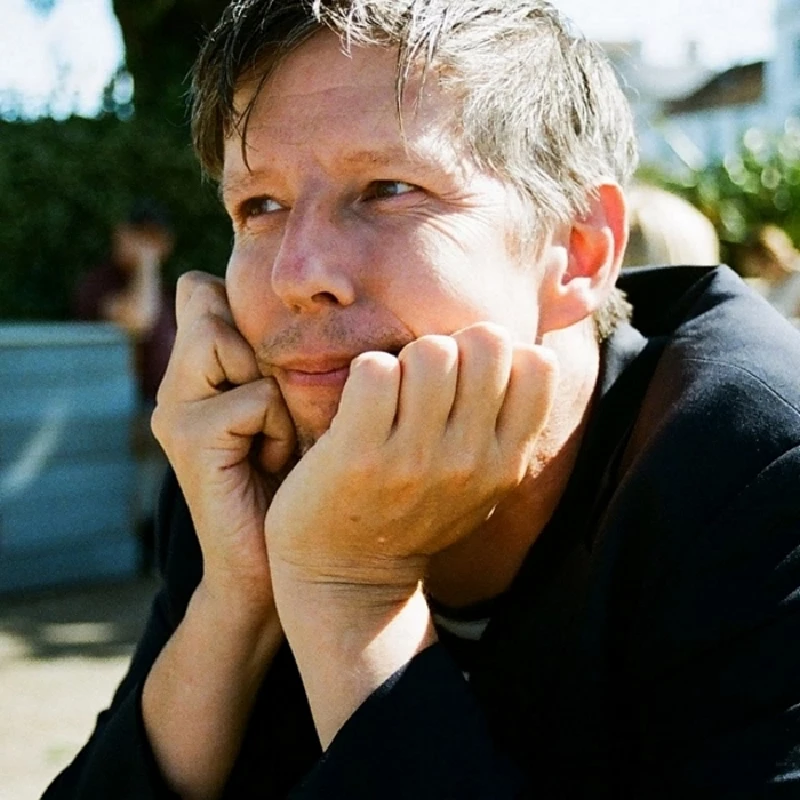
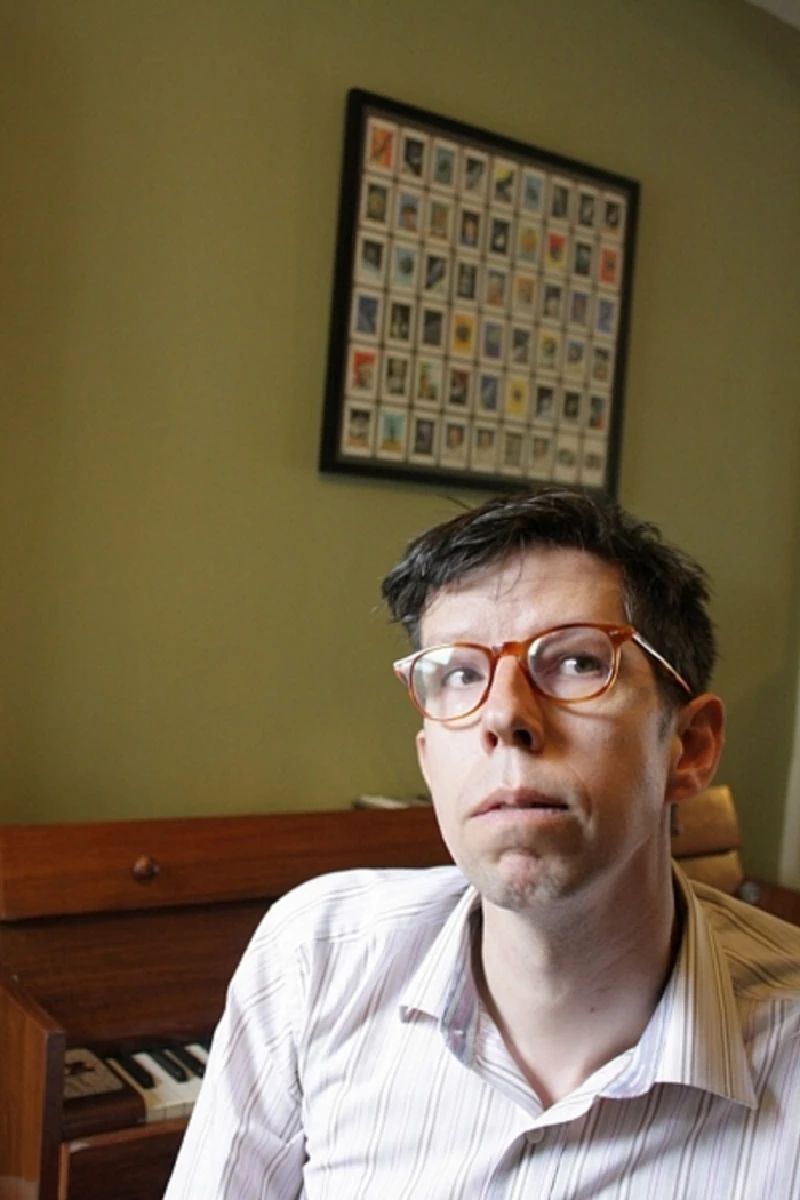
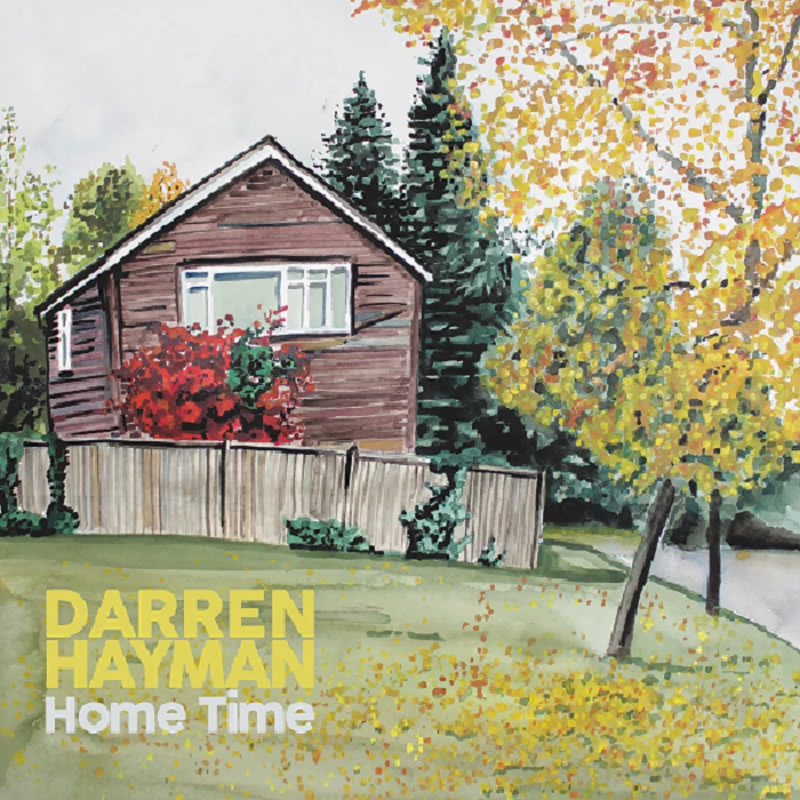
interviews |
|
Interview (2012) |
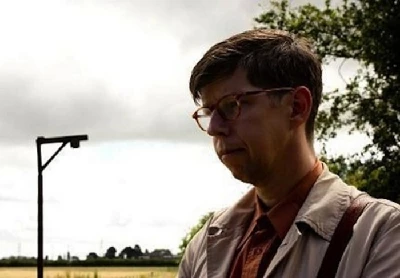
|
| Ben Howarth talks to former Hefner front man Darren Hayman about his new album 'The Violence', which takes as its main theme the seventeenth century Essex Witch Trials |
| Interview (2009) |
| Interview (2007) |
live reviews |
|
Brudenell, Leeds, 24/6/2011 |
| Helen Tipping enjoys a night of acoustic rock and razor sharp humour from former Hefner front man Darren Hayman at a solo show at the Brudenell in Leeds |
| Camden Head and Bush Hall, London, 19/10/2010...23/11/2010 |
| Lexington, London, 5/3/2009 |
| Luminaire, London, 30/3/2008 |
| Luminaire, London, 12/11/2007 |
features |
|
Ten Songs That Made Me Love... (2014) |
| In 'Ten Songs that Made Me Love...', Ben Howarth writes of his favourite songs by singer-songwriter and ex-Hefner front man, Darren Hayman |
soundcloud
reviews |
|
12 Astronauts (2019) |

|
| New collection of songs by Darren Hayman celebrates the 50th anniversary of the Moon landings by sharing a very personal perspective of the twelve men who have walked on the moon |
| Thankful Villages Volume 3 (2018) |
| Thankful Villages Volume 1 (2016) |
| Florence (2015) |
| Chants for Socialists (2015) |
| January Songs (2012) |
| The Ship's Piano (2011) |
| Great British Holiday EPs (2008) |
most viewed articles
current edition
Carl Ewens - David Bowie 1964 to 1982 On Track: Every Album, Every SongArmory Show - Interview with Richard Jobson
Colin Blunstone - Thalia Hall, Chicago, 16/7/2025
Visor Fest - Valencia, Spain, 26/9/2025...27/9/2025
Bathers - Photoscapes 1
John McKay - Interview
Loft - Interview
Billie Eilish - O2 Arena, London, 10/7/2025
Robert Forster - Interview
Sir Tim Rice - Interview
previous editions
Heavenly - P.U.N.K. Girl EPManic Street Preachers - (Gig of a Lifetime) Millennium Stadium, Cardiff, December 1999
Beautiful South - Ten Songs That Made Me Love...
Oasis - Oasis, Earl's Court, London, 1995
Pixies - Ten Songs That Made Me Love...
Boomtown Rats - Ten Songs That Made Me Love....
Prolapse - Interview
Trudie Myerscough-Harris - Interview
Peter Perrett - In Dreams Begin Responsibilities Interview Part One
Simon Heavisides - Destiny Stopped Screaming: The Life and Times of Adrian Borland
most viewed reviews
current edition
Amy Macdonald - Is This What You've Been Waiting For?Sick Man of Europe - The Sick Man of Europe
Lucy Spraggan - Other Sides of the Moon
Phew, Erika Kobayashi,, Dieter Moebius - Radium Girls
Davey Woodward - Mumbo in the Jumbo
Alice Cooper - The Revenge of Alice Cooper
Bush - I Beat Loneliness
Suzanne Vega - Flying With Angels
Blueboy - 2
Cynthia Erivo - I Forgive You
Pennyblackmusic Regular Contributors
Adrian Janes
Amanda J. Window
Andrew Twambley
Anthony Dhanendran
Benjamin Howarth
Cila Warncke
Daniel Cressey
Darren Aston
Dastardly
Dave Goodwin
Denzil Watson
Dominic B. Simpson
Eoghan Lyng
Fiona Hutchings
Harry Sherriff
Helen Tipping
Jamie Rowland
John Clarkson
Julie Cruickshank
Kimberly Bright
Lisa Torem
Maarten Schiethart